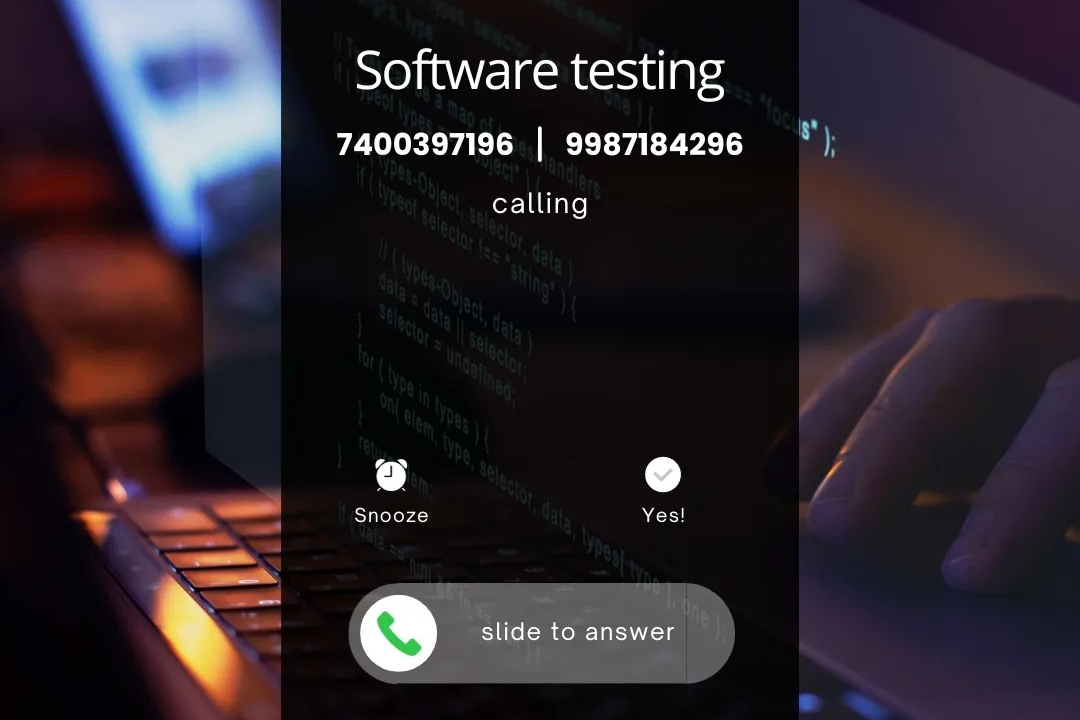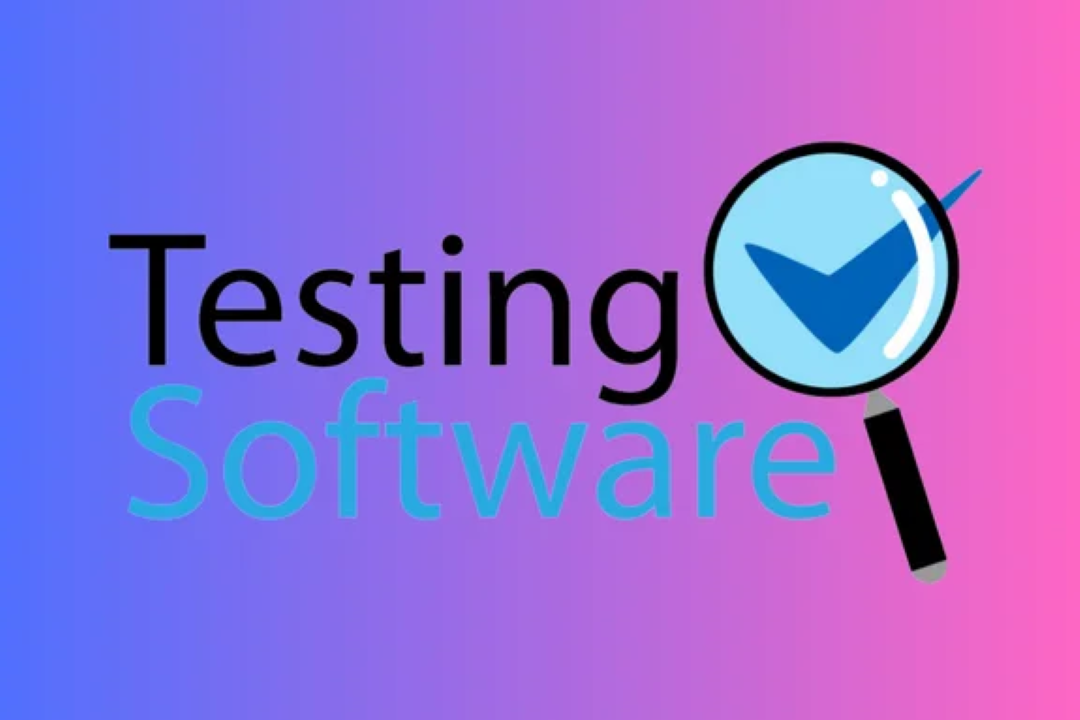IO Appium Java_Client Android AndroidDriver Jar
The `io.appium.java_client` package, specifically the `AndroidDriver` JAR, is a key component used i
IO Appium Java_Client Android AndroidDriver Jar
The `io.appium.java_client` package, particularly the `AndroidDriver` JAR, is a crucial tool for automating mobile application testing on Android devices using Appium. It provides a comprehensive set of APIs that allow developers and testers to interact effortlessly with Android apps, simulating user actions such as taps, swipes, and text input. By leveraging `AndroidDriver`, users can create robust test scripts that ensure their applications function as intended across various devices and OS versions, ultimately enhancing app quality and user experience. Its compatibility with the WebDriver protocol also allows for seamless integration with existing testing frameworks, making it an invaluable asset in the mobile testing landscape.
To Download Our Brochure: https://www.justacademy.co/download-brochure-for-free
Message us for more information: +91 9987184296
The `io.appium.java_client` package, particularly the `AndroidDriver` JAR, is a crucial tool for automating mobile application testing on Android devices using Appium. It provides a comprehensive set of APIs that allow developers and testers to interact effortlessly with Android apps, simulating user actions such as taps, swipes, and text input. By leveraging `AndroidDriver`, users can create robust test scripts that ensure their applications function as intended across various devices and OS versions, ultimately enhancing app quality and user experience. Its compatibility with the WebDriver protocol also allows for seamless integration with existing testing frameworks, making it an invaluable asset in the mobile testing landscape.
Course Overview
The ‘io.appium.java_client AndroidDriver JAR’ course offers an in-depth exploration of using the Appium framework for automating Android application testing. Participants will learn essential concepts and practical skills involved in leveraging the AndroidDriver JAR to simulate user interactions within Android apps. Through hands-on projects, the course covers fundamental topics like setup and configuration, writing test scripts in Java, and integrating Appium with existing testing frameworks. This course is designed for developers and testers seeking to enhance their mobile testing proficiency and ensure the reliability and functionality of their applications across diverse Android devices.
Course Description
The ‘io.appium.java_client AndroidDriver JAR’ course provides a comprehensive overview of using the Appium framework to automate testing for Android applications. Participants will gain hands-on experience in configuring the AndroidDriver, writing test scripts in Java, and executing tests efficiently on real devices and emulators. The course covers key concepts such as setting up a testing environment, using Appium's API, and managing interactions with UI elements, all aimed at improving mobile application reliability and performance. Ideal for developers and testers, this course combines theory with practical projects for a well-rounded learning experience.
Key Features
1 - Comprehensive Tool Coverage: Provides hands-on training with a range of industry-standard testing tools, including Selenium, JIRA, LoadRunner, and TestRail.
2) Practical Exercises: Features real-world exercises and case studies to apply tools in various testing scenarios.
3) Interactive Learning: Includes interactive sessions with industry experts for personalized feedback and guidance.
4) Detailed Tutorials: Offers extensive tutorials and documentation on tool functionalities and best practices.
5) Advanced Techniques: Covers both fundamental and advanced techniques for using testing tools effectively.
6) Data Visualization: Integrates tools for visualizing test metrics and results, enhancing data interpretation and decision-making.
7) Tool Integration: Teaches how to integrate testing tools into the software development lifecycle for streamlined workflows.
8) Project-Based Learning: Focuses on project-based learning to build practical skills and create a portfolio of completed tasks.
9) Career Support: Provides resources and support for applying learned skills to real-world job scenarios, including resume building and interview preparation.
10) Up-to-Date Content: Ensures that course materials reflect the latest industry standards and tool updates.
Benefits of taking our course
Functional Tools
1 - Appium
Appium is an open source automation tool that allows users to test mobile applications on both Android and iOS platforms. It provides a cross platform framework, meaning that the same test script can be run on multiple operating systems. This flexibility is essential for developers and testers who want to ensure their applications work seamlessly across different devices. Appium supports various programming languages, including Java, making it a popular choice among testers. Its ability to interact with native, hybrid, and mobile web applications makes it a versatile tool in the mobile testing ecosystem.
2) Java Client
The Java client for Appium provides a set of classes that allows users to write test scripts in Java seamlessly. It serves as the primary interface for writing automation tests using the Appium server. This client adapts and communicates with the server using JSON Wire Protocol, facilitating the testing process. By using the Java client, students will learn how to set up their testing environment, create test cases, and execute them while leveraging Java's rich set of libraries and features. Mastering the Java client is crucial for any student aspiring to become proficient in mobile app testing.
3) AndroidDriver
AndroidDriver is a specific implementation of the Appium driver designed for Android devices. It enables students to interact directly with Android based applications. With AndroidDriver, users can perform a variety of actions, such as simulating user interactions, retrieving application data, and managing app lifecycle events. Understanding how to use AndroidDriver is essential for automation testers focusing on native Android applications. Students will learn how to set properties, manage desired capabilities, and handle session management effectively.
4) .jar Files
Java Archive (.jar) files are packages that bundle Java classes and associated resources into a single file. In the context of Appium, using .jar files helps streamline the management of dependencies and libraries required for testing. Students will learn how to include necessary .jar files in their projects, ensuring that they have all the required components to execute their test scripts effectively. This package format promotes efficient storage and sharing of code, which is essential for collaborative projects and development environments.
5) Selenium WebDriver Protocol
Appium uses the Selenium WebDriver protocol as a fundamental communication layer between the test scripts and the mobile application. Understanding this protocol is crucial, as it defines how the client communicates with the devices and browsers. The WebDriver protocol provides commands for actions like clicking buttons, entering text, and navigating between screens. Students will be introduced to this protocol and how Appium implements these commands, enriching their knowledge of both mobile and web application testing.
6) JUnit/TestNG Frameworks
JUnit and TestNG are popular testing frameworks used in Java for executing and managing test cases. In the Appium training program, students will learn to integrate these frameworks into their testing environment. These frameworks provide features like annotations, assertions, and reporting, making it easier to organize and report test results. Utilizing frameworks like JUnit or TestNG allows students to follow best practices in test driven development (TDD) and behavior driven development (BDD), enhancing the quality and maintainability of their test scripts.
7) Integration with Continuous Integration (CI) Tools
Students will also understand how to integrate Appium tests with Continuous Integration (CI) tools such as Jenkins or CircleCI. This integration ensures that testing is part of the development lifecycle, allowing for automated testing whenever code changes are made. Understanding the CI process is crucial for students, as it promotes agile development practices and helps ensure application quality through continuous feedback.
8) Mobile Device Emulators and Simulators
Understanding the use of mobile device emulators and simulators is essential for effective mobile application testing. Emulators replicate the hardware and software environment of real devices, allowing testers to run tests without needing a physical device. Simulators, while similar, mimic only the software environment. Students will learn how to set up and use these tools to streamline the testing process, troubleshoot issues, and reduce costs associated with hardware testing.
9) Desired Capabilities
Desired capabilities are a set of key value pairs that define the configurations required to start a session with Appium. These settings allow testers to specify device names, platform versions, app paths, and more. Students will gain insights into how to correctly set desired capabilities for different testing scenarios, enabling them to customize their testing environment according to their specific application requirements.
10) Page Object Model (POM)
The Page Object Model is a design pattern that enhances test maintenance and reduces code duplication. In this model, each page of the application is represented by a separate class, encapsulating the page's elements and actions. This structure allows for more organized and readable test scripts, making it easier to update tests when the application changes. Students will learn how to implement the POM approach within their Appium projects, improving their test framework's scalability and maintainability.
11 - Touch Actions
Touch actions in Appium allow testers to perform gestures such as swiping, tapping, and long pressing on mobile devices. These actions are essential for automating interactions within mobile applications that rely on gestures. Students will learn how to utilize the TouchAction class to simulate user interactions, enhancing their ability to test applications more thoroughly and realistically.
12) Handling Alerts and Pop ups
Mobile apps often include alerts and pop ups that require special handling during testing. Students will discover techniques for managing these interstitial elements using Appium, learning to accept, dismiss, or retrieve text from alerts effectively. Mastering alert handling is crucial for ensuring comprehensive test coverage, especially in applications with extensive user interaction.
13) Capturing Screenshots and Video Logs
Monitoring and documenting test execution is vital for debugging and quality assurance. Appium allows users to capture screenshots and record video logs during test execution. Students will learn to implement these features to create detailed reports, providing evidence of test success or failure. This practice helps improve test reliability and facilitates easier identification of issues.
14) Working with Appium Inspector
Appium Inspector is a tool that allows testers to inspect the elements of the app under test, providing a visual interface to work with. Students will learn how to use Appium Inspector to identify UI elements, generate XPath and CSS selectors, and understand the app's structure. This knowledge is crucial for writing effective test scripts and troubleshooting issues.
15) Cloud Based Testing Services
As mobile testing needs grow, cloud based testing services like Sauce Labs, BrowserStack, and LambdaTest have become increasingly popular. These platforms provide access to a vast array of real devices and browsers without the need for physical hardware. Students will learn how to integrate their Appium tests with these cloud services, allowing them to achieve broader test coverage and scalability while minimizing infrastructure costs.
16) Best Practices for Mobile Testing
Students will explore best practices for mobile application testing, focusing on aspects such as test strategy, prioritization of test cases, and performance testing. Understanding the unique challenges of mobile environments—like varying network conditions and device fragmentation—will enable students to design effective test suites. This knowledge will contribute to delivering high quality applications that meet user demands.
17) Troubleshooting Common Issues
Troubleshooting is an essential skill for any tester using Appium. Students will learn how to identify and resolve common challenges related to Appium configurations, element identification, and test script execution. Building a troubleshooting toolkit allows students to become more self sufficient and efficient in their testing efforts, leading to quicker resolution of issues as they arise.
By incorporating these additional points, students will gain a comprehensive understanding of mobile automation testing with Appium, preparing them for various challenges in real world scenarios and enhancing their overall competency in this field.
Browse our course links : https://www.justacademy.co/all-courses
To Join our FREE DEMO Session:
This information is sourced from JustAcademy
Contact Info:
Roshan Chaturvedi
Message us on Whatsapp: +91 9987184296
Email id: info@justacademy.co












